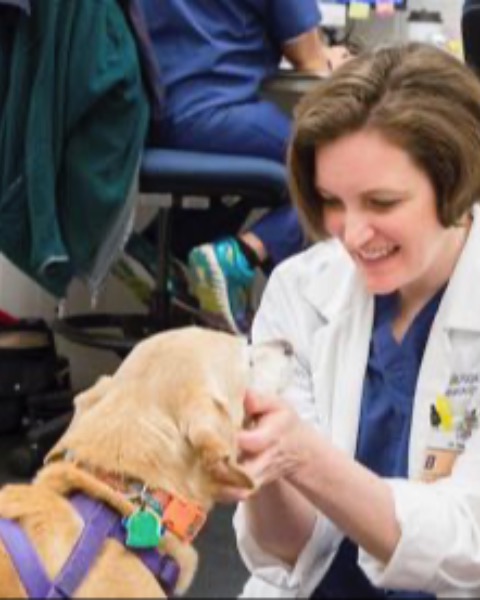Neurology
N12 - Veterinary Students’ Perception of Their Knowledge and Comfort of Clinical Neurology Prior to Their Rotation
Thursday, June 15, 2023
12:00 PM - 12:15 PM ET
Location: PCC 107AB
CE: 0.25

Devon W. Hague, DVM, DACVIM (Neurology) (she/her/hers)
Clinical Associate Professor
University of Illinois Department of Veterinary Clinical Medicine
Urbana, Illinois, United States
Research Abstract - Oral Presenter(s)
Abstract: Background: Neurology curriculum varies among veterinary schools and is not a required core clinical rotation for many.
Hypothesis/ Objectives: To evaluate the psychometric properties of a survey measuring the knowledge and comfort in clinical neurology of clinical students prior to their rotation.
Subjects: Forty-one fourth year veterinary students.
Methods: All veterinary students were asked to complete a survey one week prior to starting their elective neurology rotation. The survey included thirty-five 7-point Likert scale questions assessing study motivation and confidence in clinical neurology. Data was analyzed using a descriptive method.
Results: One hundred twenty three students participating in a neurology clinical elective rotation at one college of veterinary medicine. Forty-one students (33%) completed the survey prior to the rotation. Student perceptions on their studying and learning motivation were slightly favorable, such as looking up information to gain further understanding (mean = 5.1) and applying practical contexts to new ideas (mean 5.7). Prior to the rotation, student confidence in neurology skills were neutral in a few areas, including performing the neurologic exam, neurolocalization, and identifying seizures (means of 4.3, 4.0, 4.6). Their confidence was low in all other areas, such as treating status epilepticus (mean 3.19), produce appropriate differentials for encephalopathy, myelopathy, lower motor neuron, and vestibular cases (means of 2.8, 3.2, 3.4, and 3.5).
Conclusions and clinical importance: Veterinary students appear to have low confidence in neurology prior to a clinical rotation. There may be a benefit of a neurology rotation to improve student confidence in this area.
Hypothesis/ Objectives: To evaluate the psychometric properties of a survey measuring the knowledge and comfort in clinical neurology of clinical students prior to their rotation.
Subjects: Forty-one fourth year veterinary students.
Methods: All veterinary students were asked to complete a survey one week prior to starting their elective neurology rotation. The survey included thirty-five 7-point Likert scale questions assessing study motivation and confidence in clinical neurology. Data was analyzed using a descriptive method.
Results: One hundred twenty three students participating in a neurology clinical elective rotation at one college of veterinary medicine. Forty-one students (33%) completed the survey prior to the rotation. Student perceptions on their studying and learning motivation were slightly favorable, such as looking up information to gain further understanding (mean = 5.1) and applying practical contexts to new ideas (mean 5.7). Prior to the rotation, student confidence in neurology skills were neutral in a few areas, including performing the neurologic exam, neurolocalization, and identifying seizures (means of 4.3, 4.0, 4.6). Their confidence was low in all other areas, such as treating status epilepticus (mean 3.19), produce appropriate differentials for encephalopathy, myelopathy, lower motor neuron, and vestibular cases (means of 2.8, 3.2, 3.4, and 3.5).
Conclusions and clinical importance: Veterinary students appear to have low confidence in neurology prior to a clinical rotation. There may be a benefit of a neurology rotation to improve student confidence in this area.

